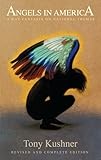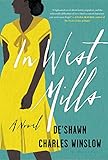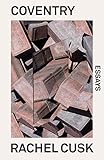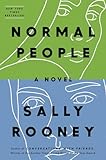What
a time to be alive. So many wonderful books came out this year and when I think
about the current state of literature in America, I’m amazed by how many
talented storytellers are writing such compelling and urgent books. It’s also
encouraging to see publishing become more inclusive to stories by writers of
color and queer-identifying authors. I know there is a lot to distract us in
our current moment—the impeachment hearings, mass shootings, the president’s
Twitter rants, the upcoming election, and a general sense that monumental
political, social, and economic shifts are taking place on a global scale—but I
find solace knowing that books are still here for us, with the quiet,
meditative, and introspective experiences they offer.
This was the year that I discovered Eve Babitz. I know I’ve arrived (very) late to this party, but alas. I picked up a copy of 



 I devoured it before my plane landed in California, the state I now call home and which Babitz writes about. I bet she’d hate being called an L.A. writer, but her stories are so L.A. She could write about paint drying and I would read every word of it. So when I got back to Fresno, I immediately ordered LA Woman and Slow Days, Fast Company and read them by the pool. Her prose style makes me envious; her eye for detail is sharp. Now I want to get drunk and make questionable decisions at the Chateau Marmont.
I devoured it before my plane landed in California, the state I now call home and which Babitz writes about. I bet she’d hate being called an L.A. writer, but her stories are so L.A. She could write about paint drying and I would read every word of it. So when I got back to Fresno, I immediately ordered LA Woman and Slow Days, Fast Company and read them by the pool. Her prose style makes me envious; her eye for detail is sharp. Now I want to get drunk and make questionable decisions at the Chateau Marmont.
I taught a summer workshop in Provincetown and two of my students recommended Matthew Lopez’s The Inheritance. They had seen the production in London and said the entire audience was weeping and holding each other at the end. How can you not immediately read something with that kind of recommendation? Fast forward a couple of weeks, I’m sitting in a coffeeshop, alone, crying over this book. I should have known not to read it in public, but at least they had napkins. I rarely cry from books, but it really is that good. The two-play structure reminded me of Tony Kushner’s Angels in America, but this feels more relevant for the PrEP-era and I think they would make an interesting pairing on a college syllabus.
Three debut novels really swept me away this year. The Unpassing by Chia-Chia Lin is so precisely observed and tells the story of a Taiwanese immigrant family of six living in Alaska. In the beginning, one of the children dies of meningitis and this looms over the characters for the rest of their lives. Lin’s writing is beautiful and heartbreaking. I especially loved the descriptions of the Alaskan terrain. I had no idea that mudflats existed until I read this novel—and now I’m both mystified and terrified of them.
The second of those debuts was Say Say Say by Lila Savage. It’s about a young woman who works as a home care attendant for a woman who suffers a brain injury after a car accident. The main character is the attendant who observes the quiet heartbreaks in this married couple’s life together. It’s a short crystal of a book, so finely observed and intimate in the way it renders the domestic realm, of lives lived and a partnership upended by an unexpected accident.
In West Mills by De’Shawn Charles Winslow was the third debut. I could not put this book down. The book spans four decades, takes place in a fictionalized North Carolina town, and centers on the lives of Knot and Otis Lee. Knot is an alcoholic who isn’t about to let any man tell her what to do. She loves booze and men and long novels and speaking her mind. I don’t want to say anything more about the plot, other than that it is engrossing. I finished the book in two days and I didn’t want it to end. Winslow is so good at writing dialogue.






 I spent a month at MacDowell and befriended a wildly talented young composer. One afternoon, Matthew and I rode our bicycles into town to browse the Toadstool Bookshops. We had talked about Lunch Poems by Frank O’Hara, so poetry was on our mind. I recommended Jorie Graham’s The Dream of the Unified Field (a book that has always been there for me when I needed it most), and he recommended John Ashberry’s Girls on the Run (which I read in my cottage in the woods).
I spent a month at MacDowell and befriended a wildly talented young composer. One afternoon, Matthew and I rode our bicycles into town to browse the Toadstool Bookshops. We had talked about Lunch Poems by Frank O’Hara, so poetry was on our mind. I recommended Jorie Graham’s The Dream of the Unified Field (a book that has always been there for me when I needed it most), and he recommended John Ashberry’s Girls on the Run (which I read in my cottage in the woods).
I received an advanced reader copy of Under the Rainbow by Celia Laskey this year and totally loved it. It’s a collection of stories that is going to be published by Riverhead in 2020 about a homophobic town in Kansas. An LGBT-rights group sends activists to live in the community in hopes of swaying public opinion. I loved the polyphonic nature of this book and how Laskey inhabits the various perspectives that would comprise of such a place.
Trust Exercise by Susan Choi and Great House by Nicole Krauss are two books I read this year that really push the form of the novel. I read them with an eye toward structure and I was amazed by how brilliantly each of them were scaffolded.
Two of the books that I assigned to students this year that I’m wildly excited by are Lot by Bryan Washington and Alice Munro’s Selected Stories. Washington’s prose style is really voice driven, which is so up my alley. His sentences are fierce; the language sizzles on the page. Munro is a goddess and my saying that isn’t anything new. I’m in awe of how she plays with time on the page and her ability to characterize even the most minor of characters in one or two sentences. In the past, I would usually read one Munro story at a time, then wait another few months before reading the next. This is the first time that I’ve read a couple of her stories each week, for 16 weeks in a row. It’s quite the experience to be saturated in Alice Munro. I’m obsessed with her recurring characters Flo and Rose, but since I’m reading the Selected, I need to add The Beggar Maid to my TBR list. I want to see the full arc of their lives.
I’m ending the year with essays. Right now, I’m toggling between Roxane Gay’s Bad Feminist and Rachel Cusk’s Coventry. Their prose styles and topics of interest are very different from each other, but I think there are thematic similarities to both books. Perhaps too early to say, though. I’m only about 50 percent through each one. I read two essays from Bad Feminist, then one from Coventry, and repeat.
Finally, I have Sally Rooney’s Normal People next to my luggage. I plan on reading it on the plane when I visit family for Thanksgiving. I live and breathe for Sally Rooney’s dialogue.
More from A Year in Reading 2019
Do you love Year in Reading and the amazing books and arts content that The Millions produces year round? We are asking readers for support to ensure that The Millions can stay vibrant for years to come. Please click here to learn about several simple ways you can support The Millions now.
Don’t miss: A Year in Reading 2018, 2017, 2016, 2015, 2014, 2013, 2012, 2011, 2010, 2009, 2008, 2007, 2006, 2005
The post A Year in Reading: Joseph Cassara appeared first on The Millions.
Source : A Year in Reading: Joseph Cassara










